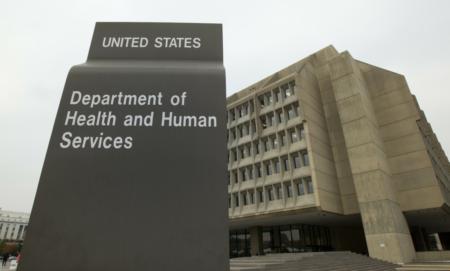Court lifts order that blocked dioceses from HHS mandate procedures
WASHINGTON (CNS) -- In an order filed June 29, the Supreme Court lifted a stay that had blocked several religious institutions from having to follow a procedure set out by the federal government to avoid paying for contraceptive coverage.
The order in a case filed by the bishops and the Dioceses of Pittsburgh and Erie, Pennsylvania, their charitable institutions and a school, denied their application to continue a stay issued by Justice Samuel Alito in April. The order also specifies that lifting the block "should not be construed as an expression of the court's views on the merits" of a future appeal of the organizations' obligation to participate in the system set out by the Department of Health and Human Services.
It also noted that "nothing in this interim order" affects the ability of employees of the church institutions to obtain "without cost, the full range of FDA-approved contraceptives."
In other words, the dioceses, charities and a prep school that do not want to participate in the Affordable Care Act's requirement to provide coverage for contraceptives in employee health insurance are no longer shielded from having to follow procedures established for them to opt out. And employees of the church-connected entities may obtain coverage for contraceptives.
HHS rules for the ACA set out two ways for nonexempt faith-based institutions to avoid providing contraceptive coverage if doing so violates their religious beliefs. Entities such as dioceses and churches are automatically exempt from the requirement, called a mandate.
Other religious nonprofit institutions that do not qualify for the exemption can follow the steps of an accommodation. That entails filing a form with their insurer or third-party insurance administrator, or sending a notice to HHS. Insurers then provide employees with the coverage in a way that does not require any further action by the employers and at no cost to the employers. The penalty for not following the steps for the accommodation vary but could be $2,000 per employee per year or $100 per employee per day, according to an HHS mandate web page maintained by the Becket Fund, a law firm which has brought many of the lawsuits on behalf of religious institutions.
The Pennsylvania religious institutions and others nationwide have sued, saying that following those steps implicate the organizations in actions that violate their religious belief that artificial contraceptives are immoral.
The case is titled for Bishop David A. Zubik of Pittsburgh and Bishop Lawrence T. Persico of Erie, v. Sylvia Burwell, secretary of HHS, and other federal agency heads.
No case challenging the mandate or the accommodation as applied to faith-based nonprofit institutions has yet reached the Supreme Court. Several federal circuit courts of appeal have ruled that religious rights are not substantially burdened by the process required for the accommodation. None have ruled that the faith-based organizations have a valid claim that prevents them from following the procedures.
Last summer in a case brought by Hobby Lobby, the court ruled that closely held, for-profit companies such as the Oklahoma-based craft store chain, may qualify for a religious exemption from the mandate.
That ruling had no bearing on the separate rules in the ACA for nonprofit faith-based entities such as religious colleges, charities and religious orders.
One of the most widely reported is a challenge to the accommodation by the Little Sisters of the Poor, who have a lawsuit pending a ruling by the 10th U.S. Circuit Court of Appeals, which heard arguments in the case in December.
A week earlier, on June 22, the 5th U.S. Circuit Court of Appeals ruled that religious rights are not substantially burdened by the accommodation. That case consolidated challenges brought by the Dioceses of Fort Worth and Beaumont, Texas, the University of Dallas and Catholic Charities of Southeast Texas and Fort Worth, as well as East Texas Baptist University, Houston Baptist University and the Pennsylvania-based Westminster Theological Seminary, which joined the two Baptist institutions' suit as an intervenor.



















